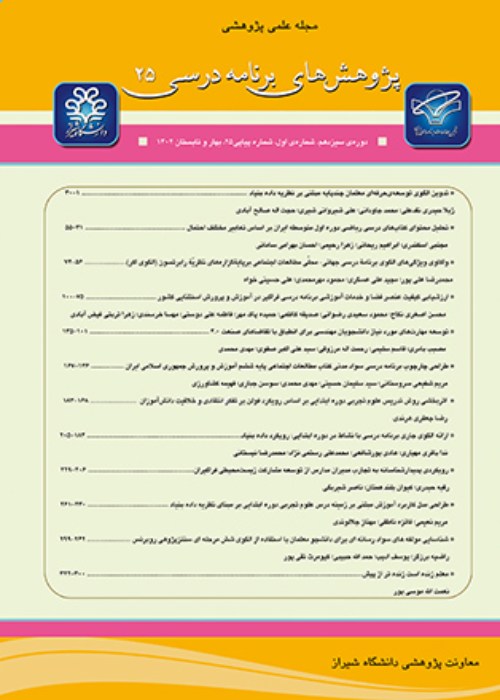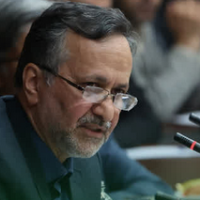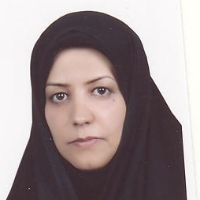An Evaluation of the Quality of Space and Educational Services in the Inclusive Curriculum of Exceptional Education in Iran Based on the Standards of the Model School
Today, inclusive education has become a global movement at the national and international levels. Inclusive education is an approach that allows disabled students (with special needs) to benefit from a joint learning experience with their non-disabled peers in general education classes. Education experts acknowledge that the educational system, in its current condition, cannot meet the educational, psychological, and social needs of students with special needs. In the meantime, most of the issues related to this transformational inclusive approach are devoted to the adaptation of the educational environment, which needs to be reviewed and evaluated. A considerable time has passed since the formulation of the pilot plan for inclusive education and the promotion of the model school in exceptional education in Iran. As a result of these two developments, the Iranian education system has faced new opportunities and challenges. It, thus, is vitally essential to examine the quality of the educational environment of inclusive schools based on the model school. The present study was conducted with the aim of evaluating the pedagogical quality of space and educational services in the inclusive curriculum of exceptional education in Iran based on the standards of the model school. Research questions The following three research questions guided this study: 1. What is the quality of securing the space, adapting the physical environment, and facilitating the access of inclusive schools based on each of the five investigated provinces? 2. How is the quality of securing the space, adapting the physical environment, and facilitating access to inclusive schools within the elementary schools and junior and senior high schools? 3. How is the quality of securing the space, adapting the physical environment, and facilitating access to inclusive schools in inclusive schools from the perspective of the main stakeholders (i.e., principals of inclusive schools and supporting schools and parents of students with special needs in the inclusive education plan)?
This study utilized a mixed-methods design. The statistical population included all inclusive schools, supportive and inclusive principals, and inclusive parents in all three stages of schooling, namely, elementary, junior high school, and senior high school, in Iran. Multi-stage cluster sampling method was used to select five provinces in Iran, including Khuzestan, Kerman, Tehran, East Azarbaijan, and Khorasan Razavi. Then, the capital of each province and four cities from that province were selected for data collection. The sample included 75 inclusive schools from the five representative provinces. An observation list was used to check and evaluate the quality of space and educational services. This observation form was compiled based on the standards mentioned in the approved content of the Model School (2018) developed by the Exceptional Education Organization in Iran and included 170 items with 17 components (entrance and exit,14 items), stairs (19 items), ramp (9 items), corridors (14 items), classrooms (22 items), doors (11 items), windows (5 items), yard (6 items), drinking taps in the yard (8 items), restrooms (14 items), library (5 items), sports halls (4 items), elevator (13 items), ventilation system (3 items), safety equipment (4 items), special supplies for students with special needs (5 items), and light (4 items). The validity and reliability of this list were confirmed. In addition to the mentioned list, a semi-structured interview was used to examine the opinions of inclusive and supportive school principals as well as inclusive parents. Quantitative data were analyzed using descriptive statistics and t-test with the help of SPSS (version 21). Furthermore, the analysis of interviews was conducted using Strauss and Corbin’s (2008) systematic method. The interviews were transcribed, analyzed, conceptualized, and categorized.
The results showed that, in general, the condition of the physical input of schools in all investigated provinces was far from desirable. Also, except for “light” and “safety equipment” that were found to be in a satisfactory condition in all three stages of schooling (i.e., elementary schools, junior high schools, and senior high schools), the situation in other components associated with the ‘Model School’ was unfavorable. However, the analysis of the data obtained from the interviews indicated that the quality of securing the space, adapting the physical environment, and facilitating access to inclusive schools was in a favorable condition.
The findings showed that the status of ordinary schools to offer education to students with special needs did not meet the standards set for the ‘Model School’. More specifically, in some provinces, such as Khuzestan, there was a huge gap between expectations and reality. In other provinces, out of 17 components, only some components in normal schools were at the optimal level. The results highlight the need to equip, secure, and develop normal schools according to the ‘Model School’ standards.
- حق عضویت دریافتی صرف حمایت از نشریات عضو و نگهداری، تکمیل و توسعه مگیران میشود.
- پرداخت حق اشتراک و دانلود مقالات اجازه بازنشر آن در سایر رسانههای چاپی و دیجیتال را به کاربر نمیدهد.




